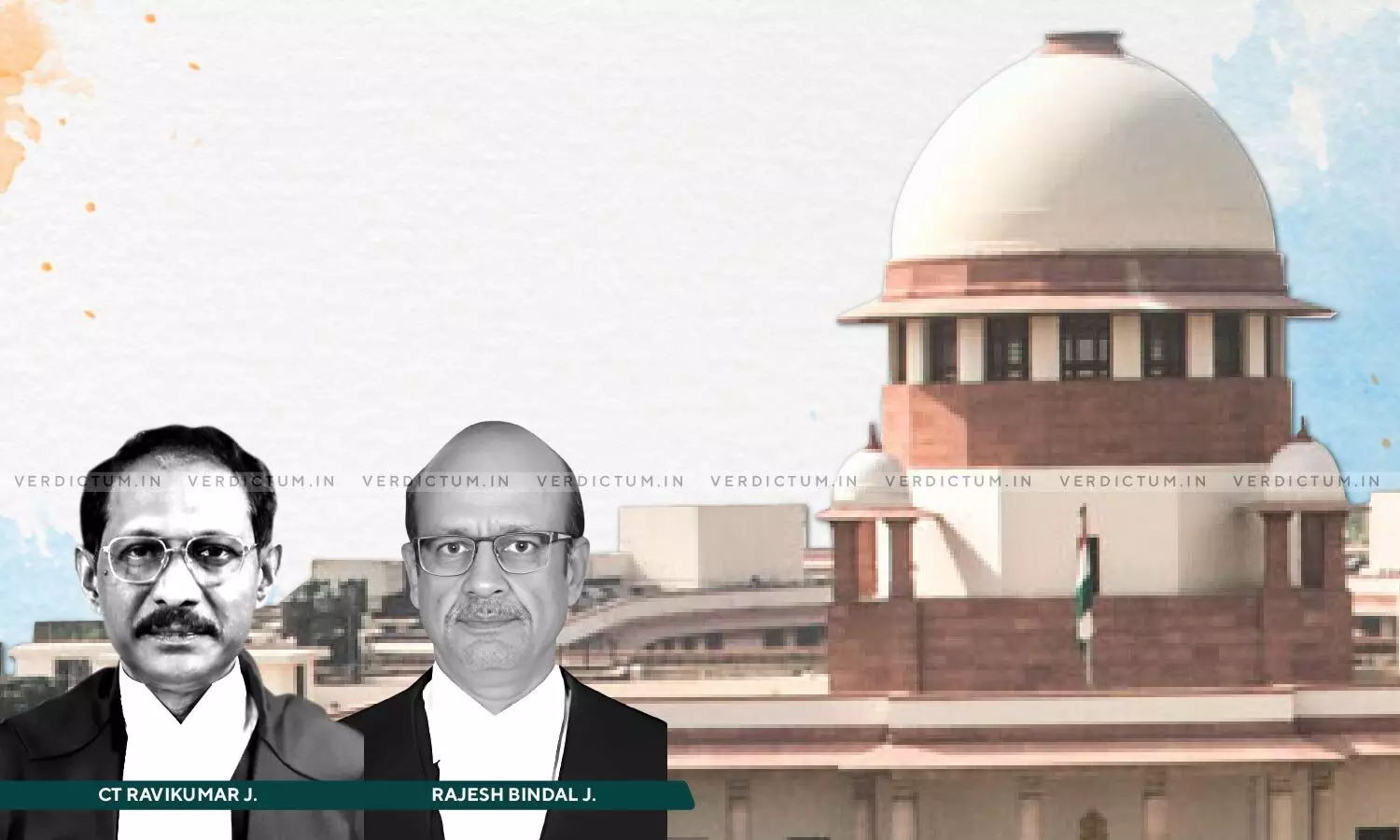
Three Months Period Provided For Completion Of Preliminary Assessment U/S 14(3) Of Juvenile Justice Act 2015 Is Not Mandatory: SC
 |
|The Supreme Court held that the provision of Section 14(3) of the Juvenile Justice Act 2015, providing for the period of three months for completion of a preliminary assessment under Section 15 of the Act, is not mandatory.
The Court said that the time so provided in Section 14(3) can be extended by the Chief Judicial Magistrate or the Chief Metropolitan Magistrate, as the case may be, for the reasons to be recorded in writing.
In that context, the Bench of Justice CT Ravikumar and Justice Rajesh Bindal observed that, "As in the process of preliminary inquiry there is involvement of many persons, namely, the investigating officer, the experts whose opinion is to be obtained, and thereafter the proceedings before the Board, where for different reasons any of the party may be able to delay the proceedings, in our opinion the time so provided in Section 14(3) cannot be held to be mandatory, as no consequences of failure have been provided as is there in case of enquiry into petty offences in terms of Section 14(4) of the Act. If we see the facts of the case in hand, the investigating officer had taken about two months’ time in getting the report from the NIMHANS. Where consequences for default for a prescribed period in a Statute are not mentioned, the same cannot be held to be mandatory."
Senior Counsels Sidharth Luthra and Senior Counsel S Nagamuthu appeared for the appellant.
In this case, an appeal was filed by the Child in Conflict with Law, challenging the order passed by the High Court. The High Court had invalidated the decision made by the Juvenile Justice Board.
An FIR had been lodged against the CCL for offences under sections 376(i), 342 IPC, and sections 4, 5, 6, 7, and 8 of the Protection of Children from Sexual Offenses Act, 2012. Following the CCL's apprehension, he was brought before the Board and subsequently granted bail. After the investigation concluded, a charge sheet was filed, prompting the Board to determine whether the CCL should be tried by the Board or as an adult by the Children’s Court.
An order by members of the Board was then issued on 05.04.2022, stating that based on the preliminary assessment report and the social investigation report, the inquiry into the alleged offence committed by the CCL was to be conducted by the Board as a juvenile.
An application under Section 19 of the Juvenile Justice (Care and Protection of Children) Act, 2015 was filed by the complainant/mother of the victim before the Board, seeking termination of proceedings and transferring the matter to the Children’s Court. The CCL filed objections to this application. Subsequently, the Board dismissed the application.
Challenging this decision, the complainant filed a revision petition before the High Court, which was granted. The impugned order passed by the Board was set aside, and the Board was directed to transmit the record to the Children’s Court for trial. The CCL then approached the Apex Court.
The Apex Court made the following observations:
(i) The provision of Section 14(3) of the Act, providing for the period of three months for completion of a preliminary assessment under Section 15 of the Act, is not mandatory. The same is held to be directory. The period can be extended, for the reasons to be recorded in writing, by the Chief Judicial Magistrate or, as the case may be, the Chief Metropolitan Magistrate.
(ii) The words ‘Children’s Court’ and ‘Court of Sessions’ in Juvenile Justice (Care and Protection of Children) Act, 2015 and the 2016 Rules shall be read interchangeably. Primarily jurisdiction vests in the Children’s Court. However, in the absence of constitution of such Children’s Court in the district, the power to be exercised under the Act is vested with the Court of Sessions.
(iii) Appeal, under Section 101(2) of the Act against an order of the Board passed under Section 15 of the Act, can be filed within a period of 30 days. The appellate court can entertain the appeal after the expiry of the aforesaid period, provided sufficient cause is shown. Endeavour has to be made to decide any such appeal filed within a period of 30 days.
(iv) There is no error in the exercise of revisional jurisdiction by the High Court in the present matter.
(v) There is no error in the order dated 15.11.2023 passed by the High Court dealing with the procedure as provided for under the Act in terms of Section 7(4) thereof.
(vi) Order passed by the Board as signed by the Principal Magistrate on 05.04.2022 was final. However, the same is subject to right of appeal of the aggrieved party. The appellant shall have the right of appeal against the aforesaid order within a period of 10 days from today. The appellate authority shall make an endeavour to decide the same within a period of two months from the date of filing.
(vii) In all the orders passed by the Courts, Tribunals, Boards and the Quasi-Judicial Authorities the names of the Presiding Officer and/or the Members who sign the orders shall be mentioned. In case any identification number has been given, the same can also be added.
(viii) The Presiding Officers and/or Members while passing the order shall properly record presence of the parties and/or their counsels, the purpose for which the matter is being adjourned and the party on whose behalf the adjournment has been sought and granted.
Hence, the Court granted the remedy of appeal and held that the CCL could exercise his right of appeal against the order dated 05.04.2022 passed by the Board within 10 days and the appeal, if any filed, shall be decided by the appellate authority within two months thereafter.
Cause Title: Child In Conflict With Law Through His Mother vs The State of Karnataka & Anr.
Click here to read/download the Judgment